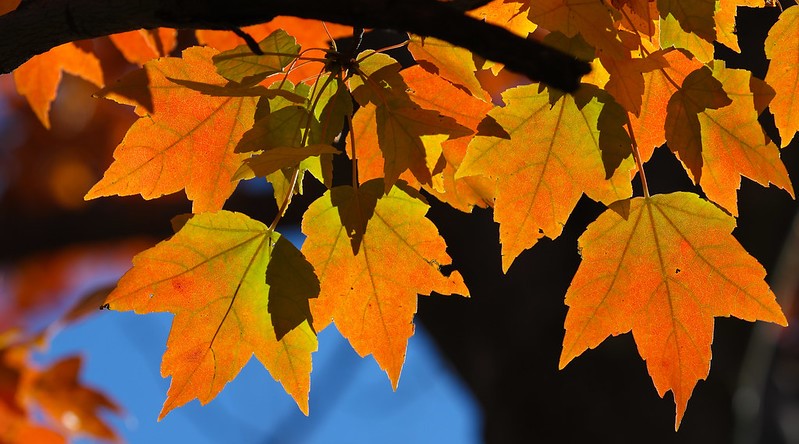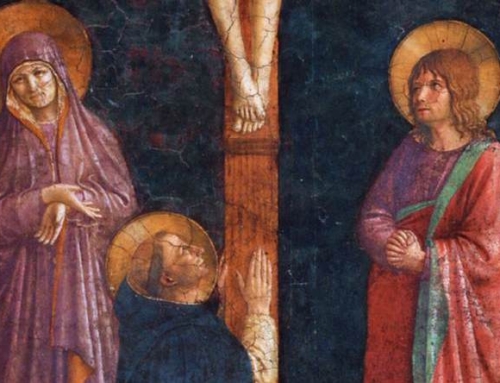This is part of a series on American Catholic authors. Read the series introduction here.
Some men die too early, some are born too late. For Joyce Kilmer, sadly, it was both. The simple beauty and purity of his poetry belonged to a world already fading beneath the impatient roar of the modern age. On July 30, 1918, the crack of a rifle shattered the silence hanging over the trenches, and in an instant his young voice was forever silenced. Nevertheless, his poetry stands ever resolute in the breach against an age that is deaf to the whisper of God.
Joyce Kilmer was born into a devout Episcopalian family in New Jersey in 1886. After college, he quickly established himself as a respected poet, writer, editor, literary critic, and lecturer. He became a husband and a father, far more important in his own eyes than any literary success. His sharp intellect, love of nature, and aesthetic sensibilities led him toward the Catholic Faith, though, as he once famously wrote, “I believed in the Catholic position, the Catholic view of ethics and aesthetics, for a long time. But I wanted something not intellectual, some conviction not mental—in fact I wanted Faith” (Letter to Fr. Daly, Jan. 9, 1914). This gift of faith would come through suffering. When his daughter was stricken with polio, which soon claimed her life, his acquaintance with a Catholic priest deepened to a supportive friendship. Kilmer began to pray daily for faith at a Catholic church on his way to work. The following year, he and his wife were received into the Church. In a letter, Kilmer described the inseparability of his conversion and his experience of his daughter’s suffering, saying, “Her lifeless hands led me.” He became a fervent Catholic and began receiving daily communion.
As a Catholic, as a father, as a husband, as a writer, as a soldier, Joyce Kilmer was the kind of man who would rather burn out than rust out, as the old saying goes. And his poetry is shaped by all that he was. A first-time reader is immediately confronted by his style, bold in its humility and innocence but perfectly suited for contemplation of the commonplace in the light of God. His most famous poem, Trees, illustrates this magnificently:
I think that I shall never see
A poem lovely as a tree.A tree whose hungry mouth is prest
Against the earth’s sweet flowing breast;A tree that looks at God all day,
And lifts her leafy arms to pray;A tree that may in Summer wear
A nest of robins in her hair;Upon whose bosom snow has lain;
Who intimately lives with rain.Poems are made by fools like me,
But only God can make a tree. (Kilmer, Trees)
The character of a small town’s main street and the excitement of a circus are among his many other delightful meditations. There is still greater delight in his many poems contemplating the life of Christ and Our Lady. Either explicitly or implicitly, Kilmer always sought to proclaim the goodness of God, especially with evangelical intent, as he once remarked, “I have delight chiefly in talking veiled Catholicism to non-Catholics” (Letter to Fr. James Daly, June 15, 1915).
Despite first impressions, Kilmer’s poetry must not be taken for naivety. The experience of evil and suffering is also part of the commonplace, to which he was no stranger. Kilmer knew from his own conversion that it is precisely in our crosses that God most powerfully manifests his presence and love for us. Our crosses are a true participation in the cross of Christ, so our suffering is no longer barren and meaningless. Because of this, Kilmer even dared to liken redemptive suffering to the beauty of a garden:
There was a scarlet blossom upon each foot and hand,
And a great pink rose bloomed from His side for the healing of the land.
…
A red rose is His Sacred Heart, a white rose is His face,
And His breath has turned the barren world to a rich and flowery place. (Kilmer, Roses)
Rather than suffering being something to be “solved” or “eradicated,” it is the means by which we are made into the saints that God predestined us to be. In his poem, Apology, Kilmer more fully develops this theme, which became more and more central toward the end of his life:
For blows on the fort of evil
That never shows a breach,
For terrible life-long races
To a goal no foot can reach,
For reckless leaps into darkness
With hands outstretched to a star,
There is jubilation in Heaven
Where the great dead poets are.
…
They know that on flinty sorrow
And failure and desire
The steel of their souls was hammered
To bring forth the lyric fire.
…
But for their lifetime’s passion
The quest that was fruitless and long
They chorus their loud thanksgiving
To the thorn-crowned Master of Song. (Kilmer, Apology)
Life in Christ is a drama of sanctification, and all of us are poets of the great romance of God’s love. In this poem, he introduces the imagery of fire to describe this poetic drama, which he weaves throughout several other works. Kilmer’s indomitable energy, all-consuming devotion, and romantic chivalry find no better expression than in a blazing fire. But he is always aware that if our love is a flame, then God is the sun, its ultimate source:
It is stern work, it is perilous work, to thrust your hand in the sun
And pull out a spark of immortal flame to warm the hearts of men. (Kilmer, The Proud Poet)
In his short life, Joyce Kilmer was a brilliant light for American Catholicism, having been compared even to the likes of Belloc and Chesterton. He wielded his poetic might to celebrate the extraordinary in the ordinary and ever sought to give glory to God. No praise is more fitting for such a man than his own words of praise to a fellow poet:
O bleeding feet, with peace and glory shod!
O happy moth, that flew into the Sun! (Kilmer, Father Gerard Hopkins, S.J.)
✠
Photo by Fr. Lawrence Lew, O.P. (used with permission)







